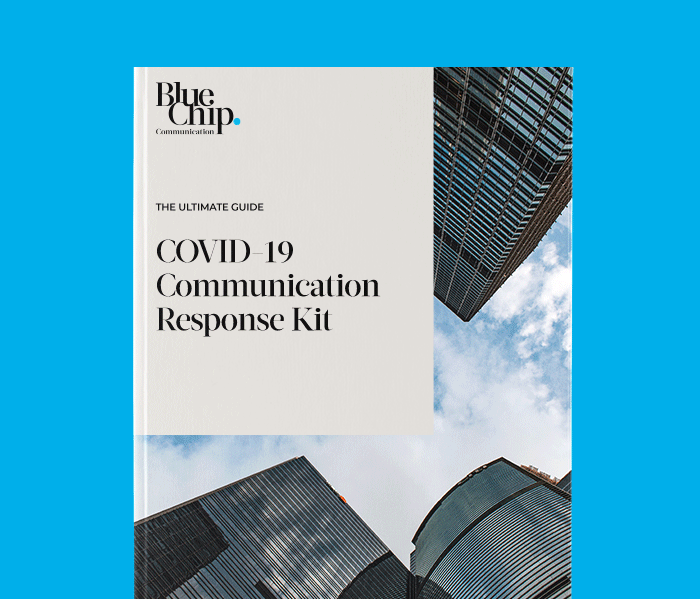We're closely watching proceedings of the Royal Commission into misconduct in the Banking, Superannuation and Financial Services Industry. Our focus is on the reputations of the people and brands in the spotlight, and on trust in the whole industry.
In light of the Royal Commission we've recently completed a review of some 20 perceptual crises in the finance sector that our senior team have personally worked on over the last two decades. From this analysis we've identified nine communication strategies used by leadership teams to slow, halt or reverse a perceptual crisis.
We're sharing these in short videos. In this episode, we will discuss strategy #5, Stealing Thunder.
Video Transcript
Jacqui Maddock: Hello, I'm Jacqui Maddock, and this is Carden Calder, the Managing Director and Founder of BlueChip Communication. And we're here today to talk to you about the next in our series of videos, looking at strategies to stop or halt a perceptual crisis in financial services. Today, we want to talk about the strategy known as Stealing Thunder.
Carden Calder: Indeed, which is breaking the news yourself, rather than waiting for others to do it.
Jacqui Maddock: And what is involved in breaking news first? I guess it's getting out on the front foot, rather than being approached by a journalist and being in a position to say, "No comment."
Carden Calder: Right. So, if we talk about this purely as a crisis communications strategy, and it has much broader use than that, but if we talk about it in the context of crisis communication, where you have bad news for your stakeholders. It might be as a result of something you've done yourself as a corporate, it might be a result of third party actions, or it could be incidental. But at the end of the day it's not going to play well for your brand if you don't manage it. This is the ultimate in proactive crisis communication. This is where the company or an individual makes the decision to tell the story themselves, rather than waiting for it to come out.
You then have choice of channel, and you need to be sure when you do it that you have a good story to tell. So, it's not necessarily a story you tell, unless you're confident that you've taken responsibility for the issue, you have at least partially thought through remediation or a plan for next steps that are reasonable. And that you are, I suppose, in short taking ownership for making things better.
Jacqui Maddock: Taking ownership, and owning the story, very, very important in this strategy.
Carden Calder: Ownership of the fix and taking ownership of the story itself.
Jacqui Maddock: Exactly. So, if we break down some of the ingredients, what do we need to get the whole team on board and to execute it seamlessly?
Carden Calder: Yep, good question, because one of the things you need is the team on board. You need your board, CEO, and/or leadership team having conviction that this is a strategy you can use well. That takes a couple of things. One is a belief that it is a viable public relations strategy, so it is something that you can go out and be proactive around, you can take decisive action rather than sort of sit and wait back. If you hesitate on this, you're lost.
So, you have to have management who believe in this as a strategy. As I mentioned earlier, you need to have conviction in your position. So, that doesn't mean that you're arguing a point, it means that you've taken responsibility for the issue and for fixing it, even if it wasn't your fault. And you also need to have some credibility in the bank with your audience. So, if you have no credibility as a corporate for historic reasons, be they short term or long term, this is a very hard strategy to pull off. If you are already trusted by certain sections of the media, or by some of the stakeholders you're going to talk to, this strategy is much more likely to work. But if you're in a low credibility situation and you can't find for example a journalist who'll give you a fair hearing, or if you don't have control over your own social media channels, for example, or you don't have a spokesperson who's going to run a really good media conference, this is not a strategy to use.
Jacqui Maddock: One of the PR crisis's we watched last year was Equifax, and you'll remember that was just a ginormous data breach, I think 150 million Americans, Canadians, and Brits were impacted with addresses, dates of birth, credit cards. All those sorts of things.
When it was discovered that the execs at Equifax held on to the information for six weeks, that there'd been this breach and the hackers had stolen that information, people were livid, almost as livid as the original wrong doing. That's an example of having to move really quickly and really decisively, because people were so, so angry.
There was a couple of other things they did as well. The press release that they sent out, full of legal jargon, it wasn't a heartfelt apology, it wasn't putting the consumers and the angst that they must have felt at the centre of the firm's ...
Carden Calder: They didn't show that empathy. It wasn’t the first concern of the firm - what's happened to the people who are affected by this?
Jacqui Maddock: Yeah.
Carden Calder: And that's a key question to answer, because if you can't answer what is the impact on you, and what are we doing for the people who are most affected, then it's not a strategy to use. And it sounds to me from the Equifax case study that they really did not use this strategy well, and they weren't putting the stakeholders and consumers in particular at the heart of their decision making.
Jacqui Maddock: Definitely not.
Carden Calder: So, it really wasn't a strategy that was going to work for them in retrospect.
Jacqui Maddock: No, exactly.
The other thing worth mentioning, as we're winding up the Royal Commission this year, is that if more companies came forward and used this Stealing Thunder strategy as a way of saying look, here's a line in the sand. We've done the wrong thing, or there's been a problem. We're addressing it, we're course correcting. And here's what we're going to do better in the future, and hopefully lift the industry standards, for example, we wouldn't be seeing so many horrific headlines and such awful information coming out of the royal commission. Do you think that's fair?
Carden Calder: I totally agree. I think the people who started to execute this well are the banks. You've seen the banks come out and start to be really clear about things they don't think they've done well in the past. And that might be because of media or community outcry, or consumer lobbies, or regulator commentary. But they are now stepping up and accepting that they have not met other people's expectations.
And the instant they started to do that, the instant there's a little bit more commentator and community acceptable that okay, we see you've got it. We see you see things the way that we do. We're going to now give you that bit more rope to be human, to make mistakes, and to improve things.
There are other sectors of the finance industry who haven't yet done yet. And I would suspect that until they do, many of the stakeholders who matter most to them won't be comfortable with their actions.
So, this Stealing Thunder strategy, if you really think it through, it's partly a leadership strategy. It's actually not just about communication. It's actually about seeing things the way that your stakeholders see them, and taking the actions they would expect and then communicating transparently about those actions.
Jacqui Maddock: Yep, I like it.
Well thank you so much for watching. We've really enjoyed talking to you today, and we're looking forward to sharing more strategies with you. In the meantime, you can sign up to our Royal Commission blog, and you can find the link to do that on our website.
Carden Calder: Indeed. Thanks for watching, and thanks for sharing the journey around crisis communication. It's an incredibly difficult time for financial services in Australia with the level of scrutiny from the Royal Commission. But our aim here is actually to find very positive learnings and to move forward the practice of communication, and of leadership communication, so that we maintain the confidence that our stakeholders have had historically, and we build that into the future.
Download BlueChip’s COVID-19 Communication Response Kit, a practical guide to help you act, communicate and lead with more certainty. It provides communication and crisis management tools specifically developed for financial services CEOs, leadership teams and coronavirus response teams.
If you’d like to discuss adjusting your communication strategy for the current times, please call us or fill out our contact form here.













